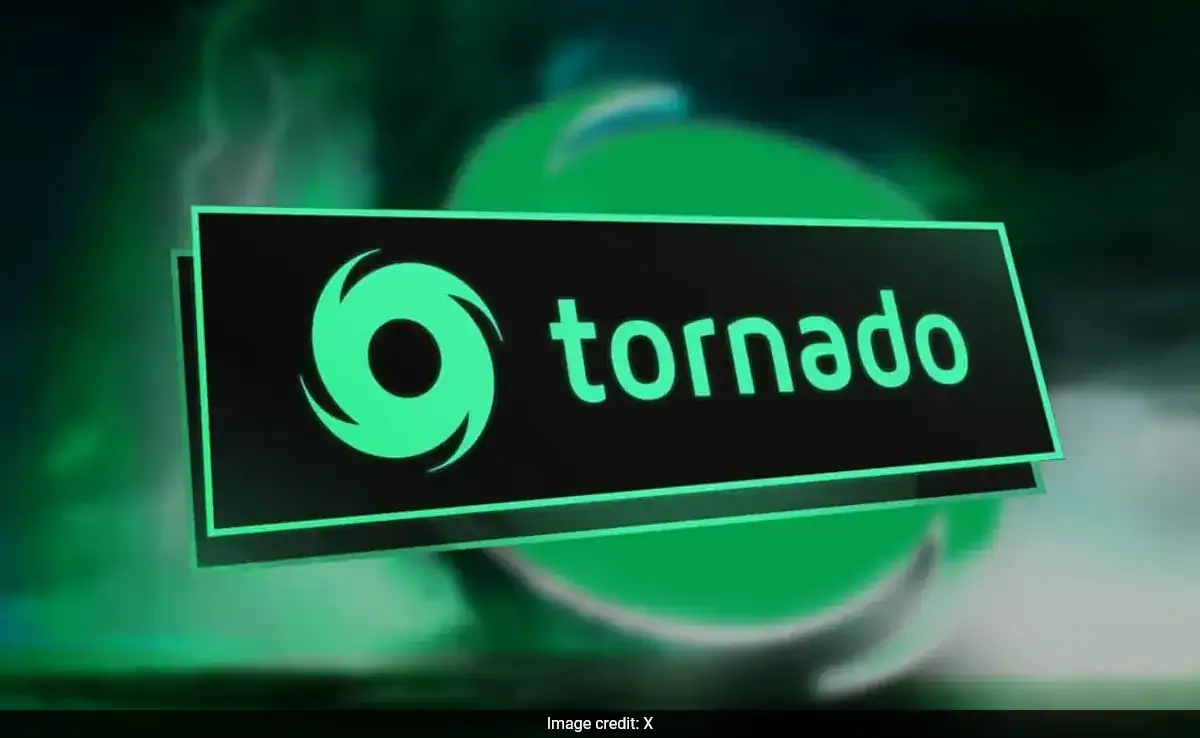🌀 What Is Tornado Cash — And Why Is It So Controversial? 🌀
-

If you've spent any time in the crypto space, you've likely heard of Tornado Cash, one of the most infamous privacy tools on Ethereum. But is it a revolutionary privacy enhancer — or a legal nightmare?
Let’s break it down.

 What Is Tornado Cash?
What Is Tornado Cash?Tornado Cash is a decentralized privacy protocol built on Ethereum that allows users to obscure the origin and destination of funds. It does this using a smart contract that breaks the on-chain link between sender and receiver.
Imagine you want to send 10 ETH anonymously:
You deposit ETH into Tornado Cash. The smart contract mixes your funds with others. You (or someone you choose) withdraw it later to a new address — without any traceable link back to your wallet.The tech behind it? Zero-knowledge proofs (ZK-SNARKs) — cryptographic tools that allow verification without revealing details.

 ️ Legal Trouble and Sanctions
️ Legal Trouble and SanctionsIn August 2022, the U.S. Treasury Department’s Office of Foreign Assets Control (OFAC) shocked the crypto world by sanctioning Tornado Cash, blacklisting its smart contracts and accusing it of enabling billions in illicit transactions — including laundering funds stolen by North Korean hackers (Lazarus Group).
This was the first time a piece of open-source code — not just people or organizations — was sanctioned by the U.S. government.
Why it matters:
The move set off alarm bells for developers, crypto privacy advocates, and decentralization purists. It sparked lawsuits, debates on open-source rights, and questions about how governments should regulate privacy tech. ️ Arrests and Legal Fallout
️ Arrests and Legal FalloutIn the Netherlands, developer Alexey Pertsev was arrested shortly after the sanctions. In the U.S., Roman Storm, another Tornado Cash co-founder, is now facing charges of money laundering and sanctions violations. Advocates argue the devs just wrote code — they didn’t run Tornado Cash, which is governed by immutable smart contracts and community governance.Storm’s trial could set a precedent for whether building privacy tools in crypto is a crime if bad actors use them.
🧠 Why People Use Tornado Cash (Besides Hackers)To protect personal privacy when making donations or payments. To prevent public tracking of crypto investments. For whistleblowing or political donations in authoritarian regimes.Even Ethereum creator Vitalik Buterin once said he used Tornado Cash to donate anonymously to Ukraine.
 The Future of Privacy in Web3
The Future of Privacy in Web3Tornado Cash raised difficult questions:
Can privacy exist in a transparent, public blockchain? Should developers be held responsible for how their code is used? Can regulators keep up with decentralized, unstoppable technology?Whatever your stance, Tornado Cash isn’t just a tool — it’s a symbol. A flashpoint in the ongoing battle between financial privacy and regulatory control in the crypto era.
 What do you think? Is Tornado Cash a vital tool for privacy, or a liability for crypto? Sound off in the comments.
What do you think? Is Tornado Cash a vital tool for privacy, or a liability for crypto? Sound off in the comments. -
Privacy isn’t a crime. Tornado Cash is a tool — like Tor or encryption — and blaming devs for how it's used sets a dangerous precedent. We don’t arrest browser developers because scammers use phishing sites. Open-source code is speech. The line between privacy and compliance is where this battle is really being fought. 🧠

-
I get the need for privacy, but the reality is regulators will come down hard on anything that enables illicit finance — especially with state actors like North Korea involved. The crypto space needs to find middle ground: privacy with accountability. Otherwise, adoption will hit a wall.

 ️
️ -
The OFAC sanctions shook a lot of devs. Writing open-source smart contracts shouldn't land you in court. If Storm gets convicted just for deploying code, it could stifle innovation across Web3. But we do need guardrails — maybe more DAO transparency, zk-audits, or opt-in compliance layers? It’s not black and white.



















